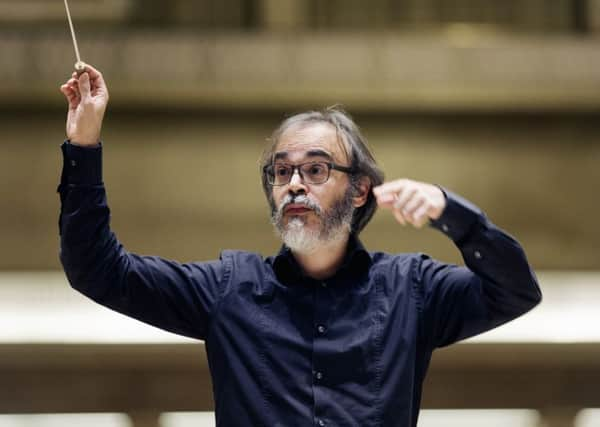Ilan Volkov on the Tectonics festival: “curiosity is the key”


Curiosity and the unknown – yes, those are the two key elements that Tectonics’ boundary-ignoring, gleefully unpredictable offerings rely on. “If our audience has got away from their TVs and left their houses, it means they want to experience things they maybe don’t know about yet,” Volkov agrees. And indeed, Tectonics has built a loyal Scottish audience during its seven years. “I’ve noticed that in all Tectonics festivals, the audience stays with the project over a long period,” he adds. “Even if there are lesser-known names among the performers or composers, it doesn’t influence the audience numbers.”
Tectonics as a concept is beautiful in its simplicity: a celebration of the wealth and richness of contemporary music and performance regardless of style or genre, bringing together classical composers alongside rock bands, folk musicians, artists creating electronica, and plenty more that’s simply unclassifiable.
Advertisement
Hide AdAdvertisement
Hide AdSince 2012, Volkov has travelled across the world with his concept: its two regular host cities are Glasgow and Tel Aviv, but alongside its original home in Iceland it has also touched down in Oslo, Stavanger, Adelaide, Athens and elsewhere.
Its Glasgow incarnation comes courtesy of the BBC Scottish Symphony Orchestra, which hosts and funds the event. “The orchestra and the whole BBC team are very much behind the festival, and a crucial part of it,” says Volkov. “They understand the value of inviting artists and musicians from all fields, and creating a space where we can celebrate what we do together.”
That BBC involvement also guarantees access to a world-class symphony orchestra, which gives six premieres of new orchestral works this year. “There are several pieces with soloists,” Volkov continues. “Jennifer Walshe has a piece called The Site of an Investigation with herself singing, Christian Wolff has a BBC commission called Old Shoe, New Shoe involving two solo percussionists, and Martin Arnold has The Gay Goshawk involving a folksinger and a violinist.”
Volkov is aware, too, that Tectonics’ new works can sometimes make unusual or outlandish demands on the orchestral players – like jamming with rock musicians, maybe, or letting their hair down in some free improvisation. “The orchestra and I have had a relationship for 15 years,” he says, “so they know by now the kinds of things I do, and they also trust in our rehearsal process. So I think they feel comfortable, even if we’re playing in very different styles.”
It seems almost churlish to select highlights from Tectonics 2019’s two jam-packed days of eclectic offerings – and, frankly, misses the point of immersing yourself in the festival’s wonderfully free-thinking ethos. But if we must, then crack harpsichordist Mahan Esfahani – already a firm Scottish favourite with his stylish Baroque playing in Edinburgh International Festivals – is in residence for three striking new works plus a classic by Luc Ferrari.
Another iconic work from the recent past is the marvellously bizarre Diabolus Apocalypsis by English experimentalist Dave Smith. Written for two electric organs, electric piano and acoustic piano, it’s a macabre minimalist classic that hasn’t been heard since its 1976 premiere at London’s ICA. There’s a whole raft of Scottish artists, too, including Skye piper Brighde Chaimbeul performing in Calm in an Agitated World by Dundee-born Genevieve Murphy.
Does Volkov feel like he’s making discoveries himself through Tectonics? “Very much so. I grow with this festival all the time. It pushes the audience, but at the same time it also pushes me and the orchestra into things we didn’t know, places we haven’t been to before. There’s so much great stuff being produced in these fields now – in modern composition, improvisation, electronic music, sound art. It’s growing a lot, and so are the people listening to it.” - David Kettle